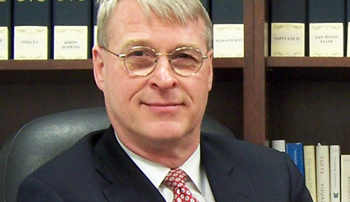As a young physician, Harrison Spencer, M.D., M.P.H., gained an interest in global health but after extensive international work, he realized the public health issues at home in the U.S. were as pressing as those overseas.
This realization led Dr. Spencer into a public health career and ultimately to him being named the first full-time president of the Association of Schools of Public Health.
 |
Harrison Spencer, M.D., M.P.H. |
Below, Dr. Spencer talks about what the COPH means to Nebraska and other public health issues.
What does it mean for the people of Nebraska to have a College of Public Health in the state?
It’s enormously important for the state and university in that they now have a college that’s primary focus is the health needs of the state. The UNMC College of Public Health will train the public health workforce for the state and develop evidence-based approaches to confront major health issues that Nebraska faces. The college also will leverage other parts of the university and medical center to help meet the state’s health needs and better link the university to the communities it serves.
How do you see the role of public health professionals evolving in the next several years?
With health care reform, enormous opportunities exist for public health professionals to work interprofessionally with other health professions to improve health and health care delivery. I also believe public health professionals will be in position to more effectively use technologies, such as social media, to foster healthier behaviors among the public.
What are the largest public health challenges you see the world facing in the coming years?
Infectious diseases always will be a threat. But perhaps even more pressing challenges exist in chronic noncommunicable diseases and their health issues. In some parts of the world, tobacco-related illnesses continue to ravage populations and in other areas — including the U.S. — obesity and its effects are a chronic threat. Automobile injuries and fatalities are another example of a major public health problem.
What message do you have for students who may consider careers in public health?
They should do it. It’s a field of service where you can make a difference. It’s a varied field that’s rich and rewarding.